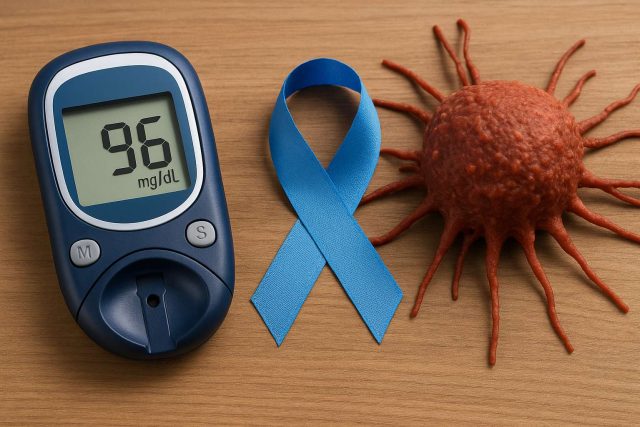Can two seemingly separate diseases share a common pathway? Increasingly, researchers are finding that diabetes and cancer may be more connected than previously thought. Although they are distinct conditions, emerging data reveals overlapping risk factors and biological processes.
This article unpacks the science behind the connection, outlines shared drivers, and highlights what clinicians and patients need to know about managing both conditions.
Table of Contents
- Shared Risk Factors Between Diabetes and Cancer
- Biological Mechanisms Behind the Link
- Clinical Considerations in Treatment and Management
- What Patients Should Know and Do
- Conclusion and FAQs
Shared Risk Factors Between Diabetes and Cancer
Multiple studies have shown that people with diabetes are at an increased risk for developing certain types of cancer. According to the American Diabetes Association and the National Cancer Institute, individuals with type 2 diabetes are more likely to develop liver, pancreatic, endometrial, breast, and colorectal cancers.
Obesity, a common risk factor for both diseases, plays a significant role. Excess body fat promotes systemic inflammation and insulin resistance, which can create a metabolic environment that fosters cancer growth. Lifestyle factors such as poor diet, lack of exercise, and smoking also increase the likelihood of developing both conditions.
Although correlation does not equal causation, the data continues to accumulate. A meta-analysis published in Diabetologia reported that people with diabetes had a 20% higher risk of developing cancer compared to non-diabetics.
Importantly, these associations vary by cancer type, gender, and geography, indicating the need for personalized risk assessments in clinical settings.
Biological Mechanisms Behind the Link
What causes this connection? Researchers point to several biological mechanisms that may explain how diabetes and cancer influence each other.
Subheading: Insulin, IGF, and Chronic Inflammation
Chronic hyperinsulinemia—often present in people with type 2 diabetes—can stimulate the insulin-like growth factor 1 (IGF-1) pathway. This pathway encourages cell division and inhibits cell death, both of which can contribute to tumor growth.
High blood glucose levels can increase oxidative stress and damage DNA, creating a favorable environment for cancer to develop. Additionally, chronic inflammation, a hallmark of insulin resistance, can support tumor initiation and progression.
Some medications have also sparked interest. For instance, metformin, a first-line diabetes drug, has been studied for its potential anticancer properties. Research published in Cancer Prevention Research suggests that metformin may reduce cancer incidence and improve survival in some populations.
Other drugs, like pioglitazone, have raised concerns over long-term cancer risks, emphasizing the importance of balanced therapeutic decisions.
Clinical Considerations in Treatment and Management
Patients with both conditions face unique challenges. Cancer can worsen glycemic control, while diabetes may limit treatment options or exacerbate side effects.
For clinicians, coordinated care is essential. Oncologists and endocrinologists must work closely to manage overlapping symptoms, especially in cases where steroids or chemotherapy impact glucose levels.
Subheading: Integrated Treatment Strategies
Recent efforts are exploring how to optimize care for individuals living with both diseases. Strategies include frequent blood sugar monitoring during cancer treatment, using glucose-friendly chemotherapy agents, and adjusting diabetes medication dosages in response to cancer therapies.
Furthermore, managing diabetes effectively may improve cancer outcomes. A study published in The Oncologist found that patients with well-controlled diabetes had better cancer survival rates compared to those with poor glycemic control.
To support this holistic approach, patient education and adherence are key. Coordinated care pathways and electronic medical records (EMRs) that facilitate interdisciplinary communication can help reduce gaps in treatment.
What Patients Should Know and Do
Understanding the link between diabetes and cancer empowers patients to take proactive steps. While the presence of one condition does not guarantee the other, awareness can guide preventive behaviors.
Subheading: Prevention and Support
Maintaining a healthy weight, exercising regularly, and eating a balanced diet are foundational to reducing risk. Avoiding tobacco, limiting alcohol, and managing blood sugar levels also help lower cancer risk.
Regular screenings are critical. Patients with diabetes should stay up to date with age-appropriate cancer screenings, such as colonoscopies, mammograms, and liver function tests.
Support systems also matter. Resources such as Health.HealingWell.com offer community-based forums for people managing chronic conditions. These spaces provide emotional support, practical advice, and peer-led education.
Patients should speak with their healthcare team about any new symptoms, treatment concerns, or risk factors. Finding a provider who understands the interplay between chronic diseases can make a significant difference. Sites like Healthcare.pro make it easier to locate experienced specialists.
Conclusion
Although diabetes and cancer are distinct, the growing body of research suggests they share important biological and lifestyle pathways. Recognizing this connection helps healthcare professionals deliver more integrated, effective care.
Patients should be encouraged to take control of modifiable risk factors and to engage in regular screenings. With informed, proactive healthcare, it is possible to manage both conditions and improve long-term outcomes.
For more insights into diabetes comorbidities and treatment strategies, visit Diabetes in Control.
FAQs
Are people with diabetes more likely to get cancer?
Yes. Studies show people with type 2 diabetes have an increased risk of several cancers, including liver, pancreatic, and colorectal cancer.
What causes the link between diabetes and cancer?
Shared risk factors like obesity, chronic inflammation, and high insulin levels contribute to the connection.
Can managing blood sugar lower cancer risk?
Maintaining good glycemic control and healthy lifestyle habits may reduce overall cancer risk and improve outcomes.
Is metformin effective in preventing cancer?
Some studies suggest metformin may have protective effects against cancer, but more research is needed before broad recommendations can be made.
How can patients find doctors who understand both conditions?
Platforms like Healthcare.pro help patients find experienced professionals specializing in diabetes and cancer care.
This content is not medical advice. For any health issues, always consult a healthcare professional. In an emergency, call 911 or your local emergency services.
